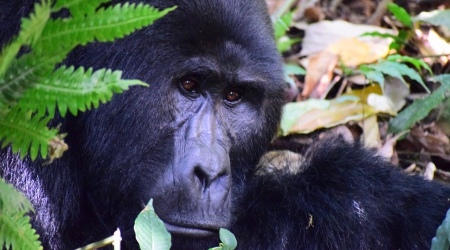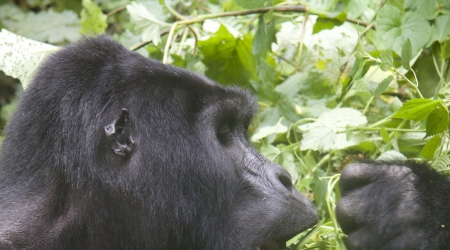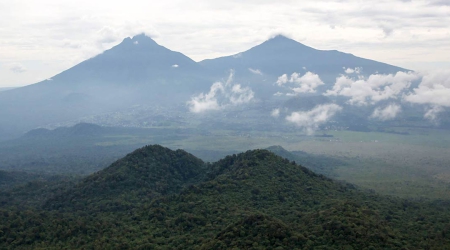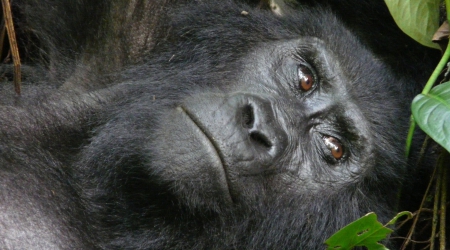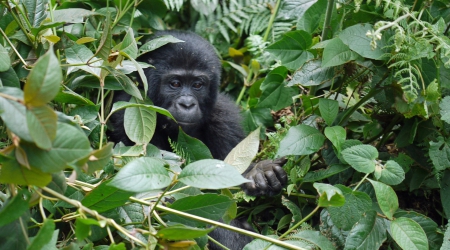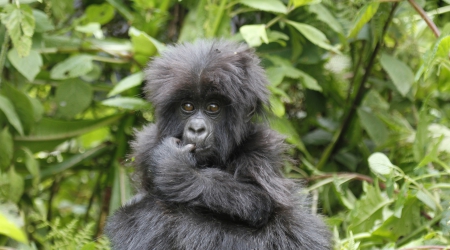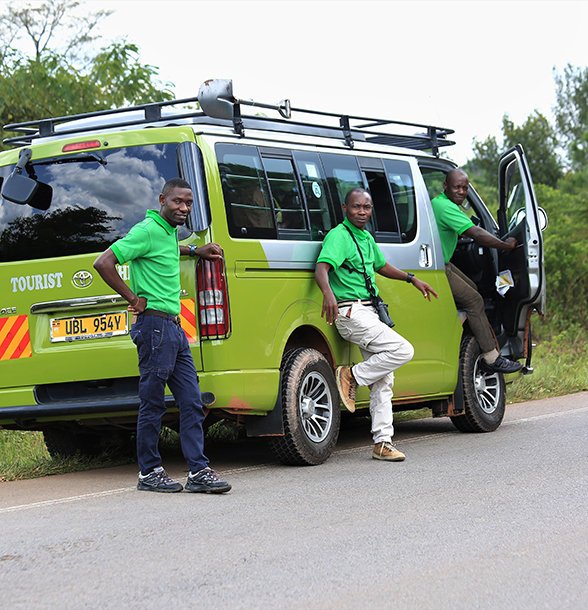When one thinks of a gorilla trekking safari in Africa, two countries come to mind: Uganda and Rwanda. These two countries are home to the majority of the once critically endangered Mountain Gorilla species. These primates are now considered endangered, thanks to the aggressive conservation strategy implemented by wildlife authorities in both countries.
Uganda Wildlife Authority manages gorillas in Uganda, while the Rwanda Development Board manages gorillas in Rwanda. These are the same authorities that issue trekking permits, though you can also obtain them from licensed tour operators. Each gorilla permit in Uganda costs $700 and $1500 in Rwanda, implying that Rwanda is more expensive than Uganda.
Despite being quite affordable, Uganda has the world’s largest population of mountain gorillas, with over 600 spread across two national parks, Bwindi Impenetrable and Mgahinga. Bwindi Impenetrable has 21 habituated gorilla families, while Mgahinga has only one. Uganda is the best option for those on a tight budget for this safari adventure.
Rwanda, on the other hand, has the fewest gorillas, with around 150 divided into 12 gorilla families. These are only found in Volcanoes National Park on the slopes of Mt. Bisoke and Karisimbi, and it is a high-end destination, as evidenced by the high cost of gorilla permits and luxurious lodges.
Gorilla trekking in both countries is similar in a way that only 8 people are allowed to visit each family in one day, the treks involve hiking to high altitude areas though Uganda hikes are more challenging compared to Rwanda.
Since the introduction of gorilla trekking in both countries, a variety of advantages have been observed:
Through the game rangers, porters, and guides who assist tourists on their gorilla treks, gorilla tourism has enabled both countries create job opportunities. Accommodation facilities, such as hotels and lodges built close to the parks employ a variety of workers, including chefs, security officers, cleaners, house keepers and hotel managers who all assist tourists going gorilla trekking and make their stay comfortable.
Gorilla tourism has contributed to the creation of new innovative business opportunities such as tour operators who plan and book tours on behalf of tourists; these new ventures not only serve as sources of taxation to the country but also create employment for youths such as reservation officers, tour consultants, web designers who create websites for tour companies and driver guides who escort tourists to their various destinations of interest. As Uganda and Rwanda are still developing countries, this has helped to reduce unemployment levels.
The number of permits sold each day generates a significant amount of revenue to these economies. Funds received contribute greatly to countries‘ GDP and consequently used to develop other sectors of the country, such as health sector, education, security, etc. Through revenue, foreign exchange is earned.
Other gems within the countries have been discovered because after visiting the gorillas, they indulge in other tourism activities such as game drives in Queen Elizabeth National Park, hiking Mount Rwenzori National Park in Uganda, boat cruises on Lake Kivu and other lakes. The different attractions visited have marked Uganda and Rwanda as the most popular tourist destinations in Africa.
Gorilla tourism has greatly aided the development of communities living near the parks; schools and hospitals have been built with proceeds from this activity. Sale of locally made crafts has boosted revenues in these communities, making them busier than ever. Such progress has also resulted in the construction of better roads, as seen in the Batwa community near Uganda’s Bwindi Impenetrable National Park.
Gorilla tourism has improved and encouraged conservation of the endangered mountain gorillas, more research has been carried out on how to keep them safe and sustain their lives. The continued conservation and habituation have greatly contributed to their increase in population which means the more gorillas and families available, more number of permits will be sold in a day and hence increased revenue earned.
Gorillas play a big role in balancing the eco system through dispersing seeds of the fruits and plants they eat that later grow and add to the vegetation cover of the forests, they also produce waste which acts as a fertilizer for the plants within their habitats.
Tourists from all walks of life have visited these countries, drawing attention to them on a global scale. This, in turn, attracts investors, whose support helps a country to develop in a long run.




